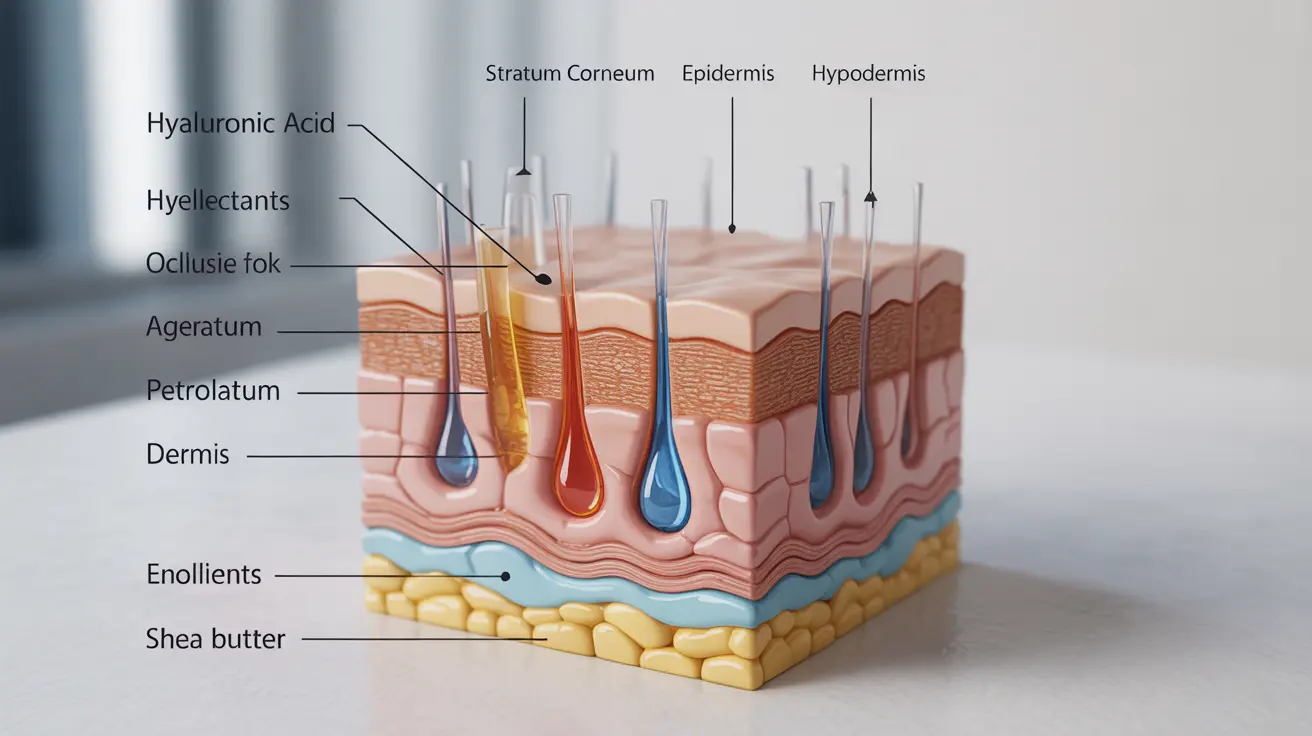Maintaining healthy, radiant skin goes far beyond cosmetic concerns—it's about protecting your body's largest organ and supporting its natural defense mechanisms. Moisturizers play a crucial role in this process, offering more than just surface-level hydration. Whether you're battling dry skin, managing a chronic skin condition, or simply seeking to improve your skin's overall health, understanding the science and selection of the right moisturizer can make a significant difference.
In this comprehensive guide, we'll explore the world of moisturizers, diving deep into their mechanisms, benefits, and how to choose the perfect product for your unique skin type and needs.
Understanding Skin Hydration and the Moisture Barrier
The key to healthy skin lies in the stratum corneum, the outermost layer of our skin that acts as a protective barrier. This thin but mighty layer maintains critical water balance, ensuring tissue flexibility and supporting essential enzymatic activities. When the moisture barrier is compromised, skin can become dry, flaky, and more susceptible to irritation and conditions like eczema.
The Science Behind Skin Hydration
Your skin's hydration follows a fascinating gradient, with water content ranging from 10-30% in the stratum corneum to 75-85% in deeper layers. This delicate balance is maintained by a complex "bricks and mortar" structure of lipids and proteins that work together to preserve barrier integrity.
Moisturizer Mechanics: How They Work
Moisturizers are sophisticated formulations that combine multiple ingredients to support skin health. They typically include three key components:
- Humectants: Ingredients like glycerin and hyaluronic acid that attract water
- Occlusive Agents: Substances such as petrolatum that prevent water loss
- Emollients: Components like shea butter that smooth and soften skin
Choosing Ingredients Wisely
Different ingredients serve specific purposes. Alpha-hydroxy acids can promote exfoliation, while ingredients like urea and honey provide deep hydration. The right combination can transform your skincare routine.
Matching Moisturizers to Your Skin Type
One size does not fit all when it comes to moisturizers. Your skin type dramatically influences which product will work best:
Specific Skin Type Recommendations
- Dry Skin: Seek rich, thick creams with ceramides and glycerin
- Oily Skin: Use lightweight, gel-based moisturizers
- Combination Skin: Balance hydration with oil-free, multi-functional products
- Sensitive Skin: Choose hypoallergenic, fragrance-free options
- Mature Skin: Look for products with retinol and peptides to address hydration and aging
Clinical Benefits and Therapeutic Applications
Beyond cosmetic improvement, moisturizers serve critical medical functions. They are fundamental in managing conditions like eczema, xerosis, atopic dermatitis, and psoriasis. Regular, targeted use can reduce symptoms, prevent flare-ups, and support long-term skin health.
Professional Insights and Patient Care
Effective moisturizer therapy isn't just about the product—it's about education and consistent application. Healthcare professionals play a crucial role in guiding patients toward the right products and understanding proper usage.
Frequently Asked Questions
What are the benefits of using a moisturizer for managing conditions like eczema and dry skin?
Moisturizers help restore the skin's protective barrier, reduce inflammation, prevent water loss, and alleviate symptoms like itching and flaking. For conditions like eczema, they can significantly decrease the frequency and severity of flare-ups.
How do I choose the right moisturizer based on my skin type?
Assess your skin's specific needs: oily skin requires lightweight, non-comedogenic formulas, while dry skin benefits from richer, more emollient products. Consider factors like sensitivity, age, and any existing skin conditions when selecting a moisturizer.
Can moisturizers help with anti-aging and improving skin texture?
Absolutely. Moisturizers with ingredients like hyaluronic acid, peptides, and retinol can improve skin elasticity, reduce the appearance of fine lines, and promote a smoother, more youthful complexion.
Are there specific ingredients in moisturizers that benefit sensitive skin?
Look for soothing, hypoallergenic ingredients like aloe vera, chamomile, and ceramides. Avoid fragrances, alcohol, and harsh chemicals that can trigger irritation.
How often should I apply moisturizer to keep my skin hydrated throughout the day?
Typically, apply moisturizer twice daily—after cleansing in the morning and before bed. For very dry or sensitive skin, additional midday application might be beneficial. Always adjust based on your skin's individual needs and environmental conditions.




